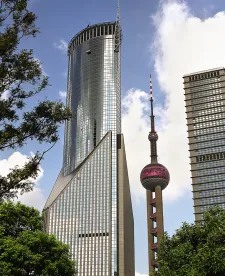China’s Ministry of Commerce recently announced that it opened four investigations during 2012 into suspected non-compliance with China’s merger control notification procedures. The outcomes of the investigations are still uncertain, but the actions clearly show increased efforts to ensure compliance through enforcement of the law. Although the number of investigations was fairly low in 2012, the four cases are part of a new, larger trend of enforcement that began with a 2011 announcement to prioritize these investigations and was reinforced by new interim measures aimed at specifying compliance obligations and enforcement procedures. Multinational companies with operations in China are encouraged to increase compliance efforts in this area in order to avoid becoming targets of this new enforcement priority.
In its 2012 year-end press conferences, China’s Ministry of Commerce (MOFCOM) announced it had opened four investigations during the year into the potential failure to properly comply with merger control notification procedures. In the previous year’s final press conference for 2011, MOFCOM announced one of its priorities for 2012 would be pursuing companies that fail to comply with the notification requirements for major mergers, acquisitions and joint ventures (concentrations). Shortly afterwards MOFCOM promulgated certain “Interim Measures” establishing procedures and sanctions for failure to notify a concentration. However, despite these strong signals there would be increased enforcement in 2012, it has turned out to be a relatively slow year.
According to Article 48 of the Anti-Monopoly Law, if entities are found to have implemented a concentration in violation of the notification procedure, they could face a fine of up to RMB 500,000 (roughly US$82,000), an injunction against continuing the concentration, orders to unwind the transaction and any “other necessary measures” to return the entities involved to the state they were in prior to the concentration.
Of the four investigations into failure to notify a concentration opened in 2012, three were instigated by whistleblower reports and one was started by MOFCOM itself. Of the three whistleblower investigations, MOFCOM announced that two of the concentrations met the necessary thresholds that would have required them to be notified. However, in the same press briefing, MOFCOM stated that the entities involved in those two cases were still in the planning stages and that the concentrations had not yet been implemented. The 2012 Interim Measures state that entities are in violation of the law only if they implement the concentration without going through the prior notification and clearance procedure. Because the two concentrations had not yet been completed, it seems likely the entities involved were not in breach of their obligations. The remaining two cases mentioned by MOFCOM in the press release are still in the investigation stages, and it is unknown whether either of those cases will result in a penalty.
No penalties and only two potential actions during the entire year seems to undercut MOFCOM’s promise to take action against the failure to notify a concentration previously. At the same time, the four cases announced during MOFCOM’s press conference do represent a significant change. This is the first time in four years that MOFCOM has publicly acknowledged any enforcement action, including any investigation, concerning a failure to notify a concentration. It is clear that MOFCOM will continue to monitor transactions that may need to be notified in China, suggesting that MOFCOM’s apparent leniency in this area should not be taken for granted.
MOFCOM’s press release of January 2013 also indicates that this coming year will be one of streamlining the notification review process. In the face of continuing concern over delays in obtaining clearance, new legislation is being prepared to simplify and make the entire process faster. A “simplified” or “fast track” procedure is likely to be introduced soon.
MOFCOM has also announced new transparency measures that will allow the public to receive basic information about all previous and future unconditional clearances—about 517 of them up to the end of 2012 by statistics published on January 6, 2013. Until now, only 16 cases of clearance with conditions and one total rejection of a concentration, were made public. This effort to bring greater transparency to MOFCOM’s review process is in line with international practice and will undoubtedly be welcomed by industry.
MOFCOM’s monitoring of (past and future) concentrations potentially subject to mandatory notification in China, and the introduction of a “fast track” procedure for concentrations that are unlikely to restrict competition, have both positive and negative aspects. Those notifying concentrations with very limited restrictions on competition can look forward to faster clearance of their transaction. Those who have failed to notify a concentration, however, must now choose to accept a higher risk the transaction will be discovered or to make a late notification with other risks arising.
After making efforts to ensure the notification of concentrations are easier and more transparent, MOFCOM is likely to be less inclined to show leniency to companies that contravene the notification requirements. Such companies can expect to meet severe administrative penalties, reputational damage and financial sanctions.
With MOFCOM’s adoption of new transparency measures (e.g., making public the list of all notifications filed with MOFCOM since the beginning of the merger control regime in 2008), it is possible more whistleblowers will come forward to expose a failure to notify. A public list of all notified cases makes it clear for all to see whether a concentration has been notified or not, and for a whistleblower to alert MOFCOM if a concentration has not been properly notified.
This article was co-written by Jared Nelson and Sean Pan.



 />i
/>i

